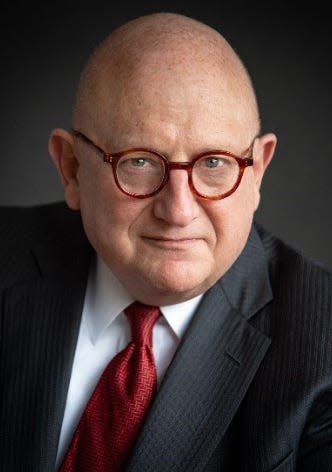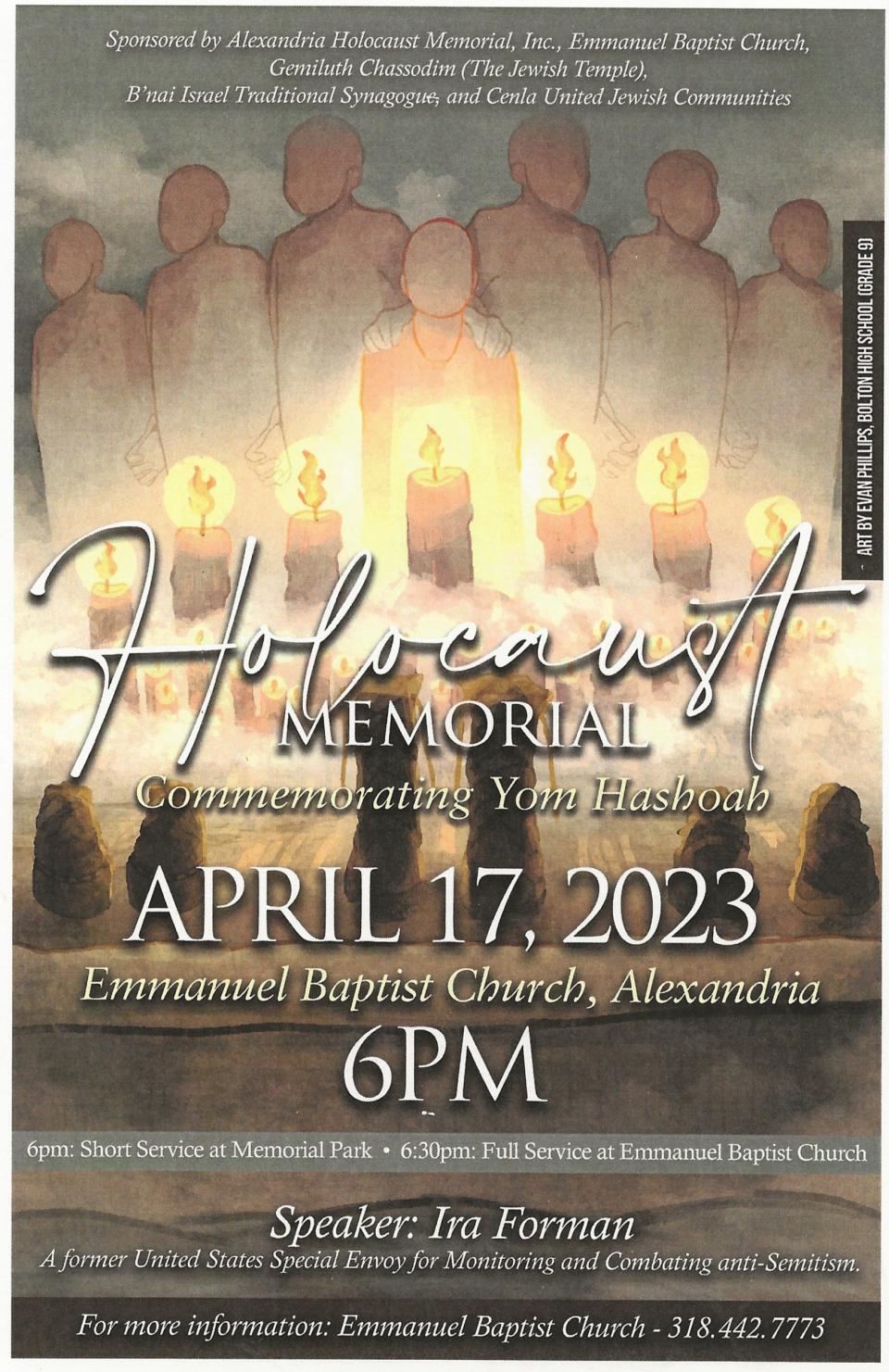Speaker: anti-Semitism not only threatens Jewish community but society at large
- Oops!Something went wrong.Please try again later.
Anti-Semitism is like a “canary in a coal mine.” It is not only a problem for the Jewish community but poses a larger threat for everyone in society.
“It's like a signal of sickness in certain societies and it means that others will also come under attack by people who, or forces that, decide to first pick out the Jews,” said Ira Forman, former U.S. Special Envoy for Monitoring and Combating anti-Semitism from 2013-17, in a phone interview from Washington D.C.
Forman will be the guest speaker for the Holocaust Remembrance event set for 6 p.m. Monday at Emmanuel Baptist Church and the guest speaker at Tuesday’s Rotary Club of Alexandria’s luncheon.

Why events like the Holocaust Remembrance are important
“I happen to believe strongly, that in a democracy, citizens need to understand something about history,” said Forman. “So history may not exactly repeat itself, and I think Mark Twain said at one point, ‘History doesn't repeat itself, but it often rhymes.’”
He said citizens need to be aware of how incredible tragedies such as genocides happen so they can be on the lookout for their own societies to make sure they never happen again.
“But I think it's extremely important that we remember,” he said. “And again, because we're kind of tasked with making sure in our generations, these things don't happen again.”
How is anti-Semitism defined?
People need to look at a particular time and place in particular country to describe anti-Semitism, said Forman. It’s not as simple as looking at data points.
"I think a Supreme Court Justice once was asked to define pornography and he said something the effect that, ‘I’m not sure I can define it, but I can tell you when I see it’. And I think that's somewhat true with anti-Semitism,” said Forman. “It manifests itself today differently in different places.”
It can come from varying parts of society in the U.S. from the extreme right and the extreme left, he said. It can come in the form of anti-Israel hatred though he noted that not all criticism of Israel is anti-Semitic.
“But there are certain lines, when it's crossed, that it can be,” he said. “It can be people who are obviously anti-Semitic and tell you that they hate Jews and do things that prove that.”
He cited Adolf Hitler, the leader of Nazi Germany who made it very clear that he hated Jews. Over 6 million Jews across Europe were killed in the Holocaust between 1933-1945.

“But sometimes it’s not even people who consciously have a hatred or dislike of Jews. It may be people who think that they’re not in any way anti-Semitic or racist or anything like that. But their behavior manifests itself in such a way that’s a threat to Jews.”
Attitudes are among the data points that determine, anti-Semitism said Forman. The Anti-Defamation League and Pew Research Center conduct polls regarding attitudes toward Jews, some of which are very positive today.
“Pew has what’s called a thermometer-type assessment of how people look at different religions. And over the last decade, Judaism has usually been the most highly respected,” said Forman.
In Europe, data is collected by talking to people in the Jewish community about how they feel anti-Semitism is affecting their lives such as not wanting to attend a religious service or event because they’re frightened.
Breaking taboos
But the ADL's recent data suggests that attitudes are beginning to shift in the U.S., he said.
In the United States, some of the taboos about saying things that are hateful or bigoted are breaking down, said Forman. Over time, hateful words can lead to violence, and that’s a major concern.
Anti-Semitism changes and morphs over time like say a virus, said Forman. And it can change pretty quickly as he’s seen in some countries.
“This is not just with the Jewish community, but often other minority communities as well,” he said. “We've had these taboos for decades and decades now, particularly since the Holocaust. Some of those taboos are breaking down. And even if we don't see changes in attitudes, when taboos break down, you expect over time, that will have an impact also on attitudes.”
Combating anti-Semitism
There is no “single, silver bullet” to combat anti-Semitism, said Forman.
“Everybody agrees education is important, but what type of education and to who? For example, teaching about the Holocaust is very important, but when you're teaching students, young people, you also have to make sure it's not just some dry history. It needs to be something that is relevant to their lives,” he said.
Social media influence
The rise of social media is also having a major impact so those effects must be considered as well.
“You know, some people point out that when the printing press was created, this caused all kinds of forms of problems and hatred, and it took literally 100 years for people to figure a little bit out about how to counteract that. We don't have 100 years to do this. Things move much faster than these days,” he said.
Local leaders can speak out against anti-Semitism
He pointed out that local leaders like mayors, clergy and civic figures can speak out against anti-Semitism. Forman said he’s seen communities where an anti-Semitic incident took place and local leaders not only spoke out forcefully against it but held rallies, marches and other things.
This led to “social ostracism” of the haters who were told they were not a part of the community, but the Jewish community and other minorities were.
“I've seen places where Neo Nazis live, and local restaurants won't serve them. They'll say, ‘Get out. We don't serve people like you.’,” said Forman.
Forman said these are not all-inclusive but just some of the tactics used to combat hatred.
“Anti-Semitism has a lot of similarities to other forms of hatred, but each form of hatred has some unique characteristics. Anti-Semitism does as well and so what might work on one form of hate may not work necessarily on another,” he said.
This article originally appeared on Alexandria Town Talk: Anti-Semitism poses threat not only to Jewish community but society at large

